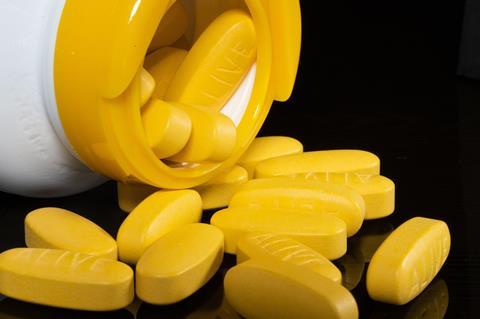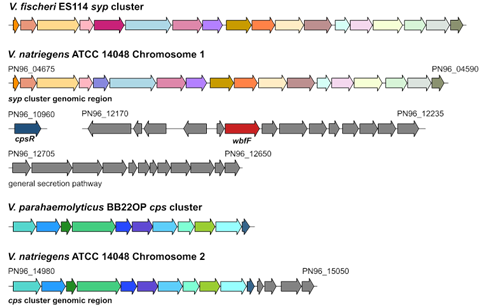An engineering technique that domesticates Vibrio natriegens to overcome the production of an unwanted by-product could pave the way for the bacterium to become a producer of chemicals, researchers have found.
The team, from the Technical University of Munich, tackled the problem of exopolysaccharide (EPS) by-product formation in a succinate production process, as outlined in the paper ‘Investigation of exopolysaccharide formation and its impact on anaerobic succinate production with Vibrio natriegens’ which has been accepted by Microbial Biotechnology, an Applied Microbiology International publication.

Corresponding author Professor Bastian Blombach explained that there is a need for sustainable processes for the production of platform chemicals such as succinate, due to environmental issues and the shortage of fossil resources.
Industrial chemical
“Industrial biotechnology offers the opportunity to produce chemicals and fuels from renewable resources with microbial catalysts. V. natriegens is a promising host to develop sophisticated bioprocesses with improved productivity due to its outstanding growth and substrate consumption rates,” he said.
“However, to fully exploit the potential of this bacterium for biotechnology, V. natriegens has to be domesticated for the industrial environment.
“Since the formation of EPS can negatively affect a bioprocess due to increased viscosity, we identified the genetic repertoire involved in the synthesis of EPS and provide a strategy to overcome this problem. Eventually, we applied these findings to improve a succinate production process.”
High biomass concentrations
The study saw the team establish an aerobic fed-batch process using V. natriegens to achieve high biomass concentrations, observing a significant increase in the viscosity of the reactor broth which indicated the formation of EPS.
“On the one hand, EPS are interesting biotechnological products and have a wide range of applications in the medical, pharmaceutical, and food industries, as well as in wastewater treatment. On the other hand, EPS represent an unwanted byproduct in microbial production processes which can negatively affect the performance of a bioprocess and the subsequent downstream processing,” Professor Blombach explained.
“In our study, we confirmed the formation of EPS and identified genes and gene clusters involved in the formation of the polymeric substance. Inactivation of a transcriptional regulator (CpsR) did not reduce EPS formation, but led to a constantly low viscosity of the culture broth and altered the carbohydrate content of the EPS.
“A mutant lacking the cps cluster secreted less EPS compared to the wildtype strain accompanied with an overall low viscosity.
Elegant solution
“The identified targets represent an elegant way to overcome EPS-related problems. Moreover, these findings were utilized to significantly improve an anaerobic succinate production process with an engineered V. natriegens strain.”
The authors deleted cpsR and cps in the succinate producer strain V. natriegens Succ1 and performed anaerobic fermentations with resting cells. V. natriegens Succ1 ΔcpsR and V. natriegens Succ1 Δcps showed improved succinate titers and yields compared to V. natriegens Succ1.

“Our results contribute to rendering V. natriegens a promising host for industrial biotechnology. We demonstrated how to overcome EPS-related issues during fermentations and furthermore to achieve high volumetric productivities and yields for succinate production,” Professor Blombach said.
“This shows the potential to replace existing petrochemical approaches with biotechnological production processes with this bacterium.
Unravelling the metabolic network
“Our study provides the first insight into EPS formation with V. natriegens. The genome comprises several genes and gene clusters associated with EPS formation indicating a complex metabolic network for the synthesis of polymeric substances under different environmental conditions.
“Therefore, future studies will unravel this intertwined metabolic network to fully understand the EPS synthesis and its regulation in the promising biotechnological host V. natriegens.”
The study was led and supported by Prof. Bastian Blombach (Technical University of Munich, Campus Straubing for Biotechnology and Sustainability) and financed by the German Research Foundation.
‘Investigation of exopolysaccharide formation and its impact on anaerobic succinate production with Vibrio natriegens’ is published in Microbial Biotechnology.







No comments yet